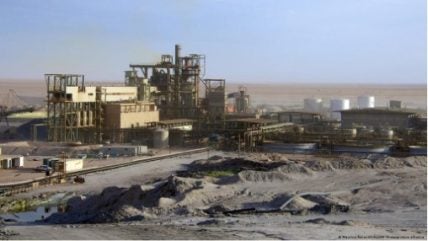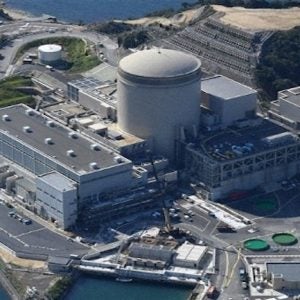
Niger’s military government has withdrawn the operating licence of France’s Orano to exploit the Imouraren uranium mine. The government said it would review foreign mining concessions after it took power in July 2023. Relations with France have steadily deteriorated after the last French military troops deployed in Niger were expelled in December 2023.
In January the government temporarily suspended the granting of new mining licences and ordered an audit of the sector. The Nigerien Ministry of Mining had warned earlier in June that it would revoke Orano’s licence if development of the mine had not started by 19 June. Orano and its partners have been active in Niger for more than 50 years.
Niger is the world’s seventh largest producer of uranium and has the highest-grade ores on the African continent. It accounts for 4.7% of the world’s natural uranium production. In 2022, Niger provided more than a quarter of the uranium used in the European Union, the second biggest supplier after Kazakhstan, according to Euratom. France has depended on Niger for up to 15% of its uranium needs.
In 2009, Niger granted an operating permit to Imouraren SA, which is 66.65% owned by Orano and 33.35% by the Nigerien state-owned Sopanin. Work started in 2012, ceased in 2015 in face of the collapse in world uranium prices following the 2011 Fukushima disaster.
Orano said in a statement that it “has always been committed to a responsible approach based on partnership and transparency, acting in continuous consultation with the State of Niger and local stakeholders, notably under the ambitious, long-term roadmap defined in the global partnership agreement signed in May 2023”.
It added: “Current market conditions, with a favourable rise in the price of uranium, make it once again possible to consider bringing Imouraren into production. This being the case, and at the authorities’ request, Orano had submitted a concrete technical proposal to the State of Niger, enabling this development to take place as quickly as possible. To this end, the infrastructures have already been reopened since June 4, 2024, to accommodate the construction teams and move the work forward.”
Orano warned that withdrawal of the mining permit could have “a negative impact on the economic, social and societal development of the region”. Orano said it “remains willing to keep all channels of communication open with the Niger authorities on this subject, while reserving the right to challenge the decision to withdraw the mining permit before the competent national or international jurisdictions”..
Orano has been present in Niger since 1971 and has three uranium mines in the country, only one of which is in operation. The Cominak mine at Arkokan has been closed since 2021. Its open-pit mine in Somaïr in northern region of Arlit resumed operation in February after a production stoppage of several months following the coup. It continues to operate despite what Orano calls “logistical” difficulties. The Imouraren mine has uranium resources estimated at 200,000 tonnes.
In recent years, Chinese, Australian, US, UK, Italian, Canadian, Russian and Indian interests have secured uranium mining licences in in Niger. In 2022 there were 31 prospecting permits and 11 mining licences. The Azelik mining company, majority held by Chinese interests, is reportedly taking over uranium mining in the north of the country that has been suspended some years because of poor profitability.
In a letter seen by The Associated Press and Bloomberg, the Ministry of Mining said Orano’s exploitation plan had failed to meet expectations. The mine has therefore been “returned to the public domain” and all contractual rights have been cancelled.






